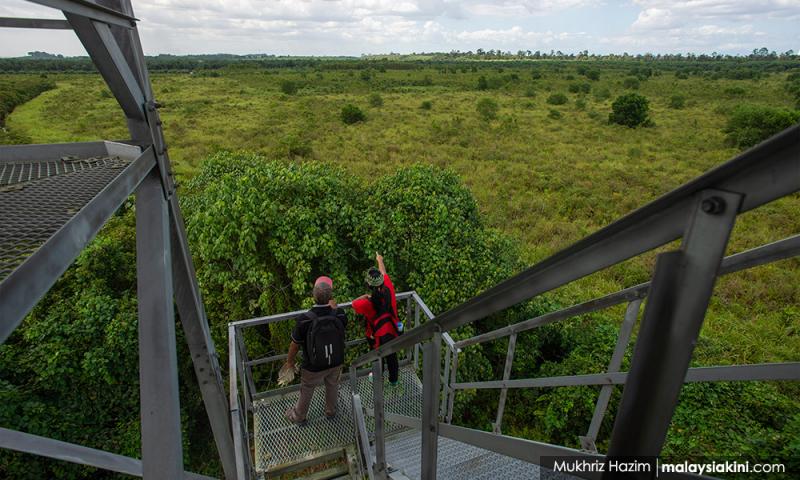LETTER | Sahabat Alam Malaysia (SAM) welcomes the decision made at the 79th National Land Council (MTN) Meeting held on Dec 2, 2021, which had agreed in principle with the implementation of a 15-year moratorium on approvals for new forest plantations (monoculture plantations) in permanent reserved forests (PRF) in Peninsular Malaysia.
However, this moratorium is insufficient, and SAM recommends that the policy on the promotion of the establishment and development of monoculture plantations in PRF should be abolished altogether and no longer implemented.
The development of monoculture plantations in PRF destroys the original forest cover (natural forest) through clear-felling. Clear-felling is not subject to the annual allowable cut.
Even the concept of plantations actually contradicts the concept of forests in terms of language and terminology. Plantations are large-scale monoculture agricultural areas cultivated with crops, while natural forest is formed naturally by plants and has a high diversity of life and performs various ecological functions.
Usually, the main justification and reason for a State Authority to approve a monoculture plantation development project is because the identified area is defined as a poor forest or degraded forest. However, such forests can be rehabilitated by planting various species of suitable trees instead of developing monoculture plantations.
It should be noted that a PRF area in Malaysia becomes a poor forest or degraded forest not due to natural factors but due to human factors, especially illegal encroachment and exploration activities.
Since the trend of large-scale monoculture plantation development has been implemented by several state authorities in Peninsular Malaysia through the leasing method to concessionaires for a long period of time, SAM has strongly objected to these schemes as we found that forest biodiversity functions were adversely affected.
In fact, there are monoculture plantations in PFR developed in areas such as wildlife corridors, especially in habitats and roaming areas of large mammals, especially elephants and tigers, areas involving indigenous communities such as their settlement and territory to collect forest products, water catchment areas and 'Central Forest Spine '(CFS), an ecological network area.
We also found that the development of monoculture plantations in PFR in Peninsular Malaysia do not follow the criteria of suitability for the establishment of monoculture plantations as per the Circular of the Director-General of Forestry, Peninsular Malaysia (No. 1 of 2010) and the Guidelines for the Establishment of Forest Plantations of the Forestry Department of Peninsular Malaysia.
Among the issues arising related to the implementation of monoculture plantation development in PFR which were found not to comply with the criteria for the establishment of monoculture plantation areas in PRF are:
i. Development in areas with a slope of more than 25 degrees;
ii. Destroy river reserve areas / riparian zones,
iii. Implement projects in areas that are not defined as poor forests / degraded forests;
iii. Selection of unlisted tree species (e.g. 'Musang King' durian cultivation); and
v. There are projects that have been operating but have not submitted and obtained the prior approval of the Environmental Impact Assessment (EIA) Report (for example, the development of forest plantation in the Bukit Enggang Forest Reserve, Central Kedah Forest District in the state of Kedah).
Based on SAM's observations and field studies, we found many monoculture plantation developments in PRF were uncontrolled even though the relevant State Authority admitted to having a 'standard operating procedure' that was approved by the relevant authorities.
According to media reports, the Prime Minister stated that there are currently 127,050.25 hectares of forest plantation development zones in PRF that have yet to be approved for any company. SAM will continue to object if the State Authority continues with the policy and proposal for the development of large-scale monoculture plantations in the PRF.
SAM calls on all stakeholders, especially MTN, relevant Ministries and agencies at the Federal level as well as all State Authorities to seriously take into account our firm stand and objection to the development of monoculture plantations in permanent reserved forests.
MEENAKSHI RAMAN is president of environmental NGO Sahabat Alam Malaysia.
The views expressed here are those of the author/contributor and do not necessarily represent the views of Malaysiakini.





